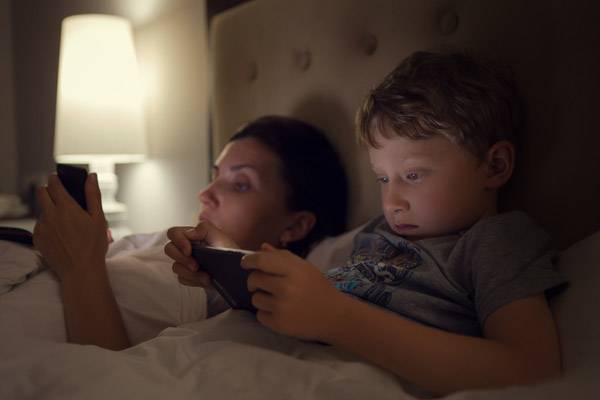On the Internet: if you don’t disconnect, they won’t either
‘Children do what they see at home’. You’ve probably heard this phrase before. Childhood is a step in growing up in which children learn from and imitate their parents’ actions. This happens in all areas of daily life, and of course, also in the use of new technologies. For example, if you’re on your phone all day long, your children will do the same. And how can you tell them they shouldn’t if they see it every day?
child care
Share

New technologies are another tool for a child’s education, and therefore not using them appropriately can be dangerous. For this reason it is essential to show your children how to use the Internet responsibly. How do you do it? Here are some tips:
• Don’t leave them alone at risk: browse with them so that they learn how to use new technologies. Warn them of the risks of Internet and advise them about using social networks.
• Set limits: children need tips and timetables to learn to be responsible. For this reason, it is important to limit the time that they spend in front of screens. Fix a time each day when they can access the Internet and try to make it always the same time. For example, when they finish their homework. Never while they eat or when they go to bed. In any case, remember you cannot demand things from them which you are not capable of yourself.
• Protect their privacy: children are not aware of the risks of putting personal information and photos on the internet, but their parents are. For this reason it is important to talk to them and help them with any questions.
• Control their activity: there is deceptive information on the Internet and it is easy to impersonate someone else. If you are close, it will be easier to access and warn them of the risks of the Internet. In any case, when they are very young it is recommended to install a parental control app to know which pages they access.

TERMS YOU MAY NOT KNOW OF AND WHICH CAN HELP YOU
• Cyberbullying: bullying also happens on the Internet. However, children aren’t aware of this concept. According to a study by Consum, 45% of young people do not recognise bullying if it happens online.
• Grooming: this is child abuse after gaining their trust on social networks. Hence the importance of making sure that they do not talk to strangers or upload intimate photos or personal information to social networks.
• Hoax: the massive online propagation of a false information presented as true.
• Phishing: obtaining confidential information in a fraudulent way. This particularly affects bank card information and passwords.
• Sexting: sending sexual content to other people via phone or computer. This content is usually created by the sender.
• Keylogging: this is a type of software used to save the keys struck on a keyboard and which enables to find out passwords or other personal information.
0 to 2 years: It is not recommended to use any mobile device.
3 to 7 years: Use of applications suitable for their age (games,colouring, drawing…), on mobile devices. Always under parental supervision.
8 to 12 years: Access to Internet.
12-13 years: First mobile phone, with parental control and time limit.
14 years: Profile on social networks and WhatsApp account.
+15 years: Blogs and forums. Uploading photos and videos..
New generations were born with Internet and mobile devices. They use them daily at school and at home. There is not in fact any harm in this new habit, as long as they use them responsibly. What is more, entering the digital world at a young age encourages learning because it communication between parents and children is easier. However, adolescence is a more complicated stage; teenagers go through many changes and feel closer to their friends than to their parents. For this reason it is important to work on proximity, empathy and understanding their problems for them to trust you.
In any case, starting to use new technologies and gaining autonomy is a staged process which depends on the maturity of a child and their preferences and interests, always within some reasonable variables.

Finding the balance between the online and offline world
At what age should they start?
Finding the balance between the online and offline world






